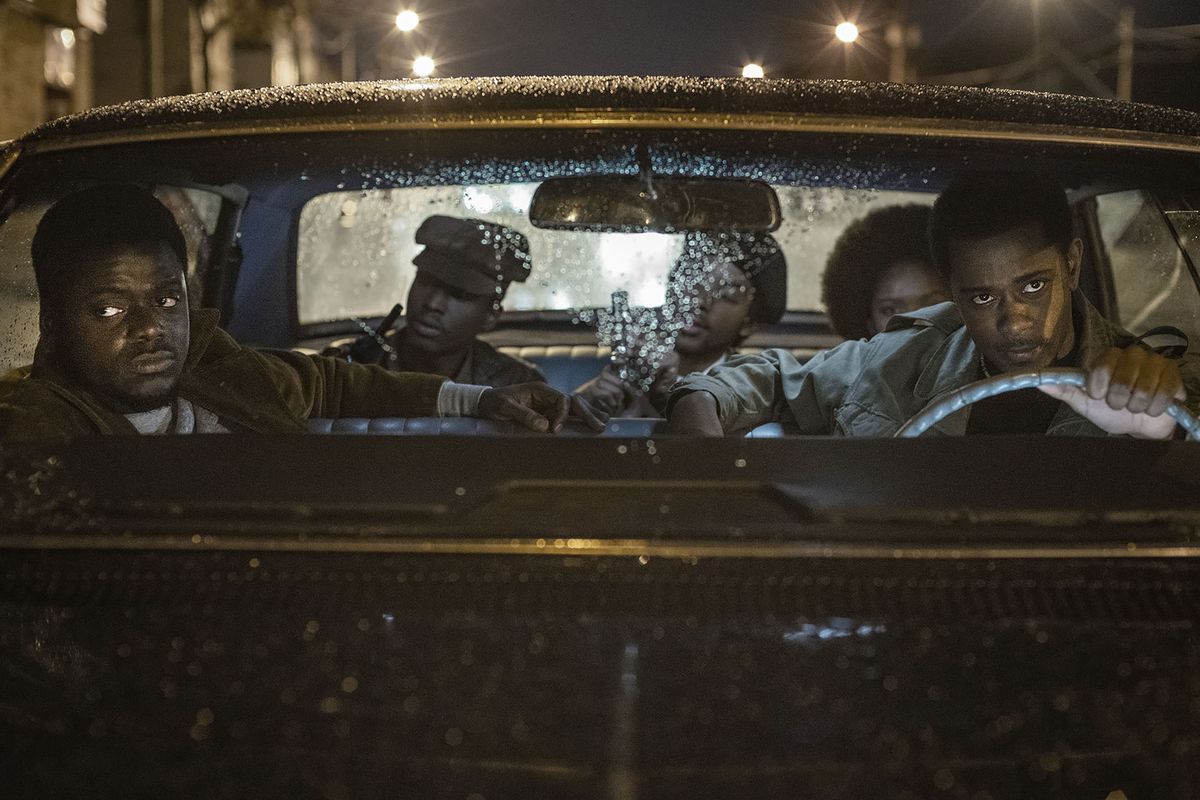‘Judas and the Black Messiah’ excavates recent history to find disturbing contemporary echoes

Arriving just weeks after “MLK/FBI,” Sam Pollard’s meticulous investigation of the FBI’s harassment campaign against Martin Luther King Jr., comes “Judas and the Black Messiah,” a similarly powerful and infuriating excavation of how the American criminal justice establishment sought to dismantle, silence and literally destroy the mid-century civil rights movement.
The Black Messiah in question isn’t King – whose moral leadership frightened FBI chief J. Edgar Hoover so much that he hounded him with threatened smears during the last years of King’s life – but Black Panther leader Fred Hampton.
Hampton’s name may not be as well-known as King’s, but it might have been had he not been gunned down at age 21 by Chicago police and federal agents. His killing was officially ruled a justifiable homicide, the long lens of history has made clear that it was more likely a political assassination.
Also clear is that Hampton was the victim of the FBI’s extensive program of plants and informants, specifically William O’Neal, who infiltrated Hampton’s inner circle and became a trusted confidante.
As “Judas and the Black Messiah” opens, O’Neal is actually impersonating a federal officer, using a fake badge to steal cars; when he is caught, FBI special agent Roy Mitchell (Jesse Plemons) tells him he can either do the time or get close to Hampton.
Mitchell positions the Panthers as the different side of the same coin as the Ku Klux Klan, but the apolitical O’Neal – looking to make a living – sees the choice as a no-brainer.
What ensues is a taut urban thriller that evokes its period setting of the late ‘’60s both in gritty visuals and no-nonsense emotional tone. O’Neal, played by Lakeith Stanfield with laconic watchfulness, presents an ideal proxy for viewers who are being introduced to the Black Panthers for the first time.
It’s easy to see why Hoover and his men were wary of Hampton, portrayed by Daniel Kaluuya with an entrancing combination of rhetorical fury and quieter moments of reflection. (“Get his Black ass off the street,” Hoover barks at one point.)
“Judas and the Black Messiah” depicts Hampton as a natural-born leader – a spellbinding orator, thoughtful activist and gifted public intellectual – as one observer quips, someone who could “sell salt to a slug.”
True to his party’s ethos, he was also completely willing to engage in armed resistance against a state that he and his fellow members perceived as murderously hostile to Blacks.
Superbly directed by Shaka King from a script he co-wrote with Will Berson (the story is by brothers Kenneth and Keith Lucas), “Judas and the Black Messiah” obeys the tense, one-move-ahead contours of the best psychological dramas, as O’Neal gets closer to Hampton not only physically but also ideologically.
Stanfield and Kaluuya are outstanding in their respective roles, with Kaluuya doing an especially adroit job of capturing Hampton’s innate charisma and soaring speeches. If “Judas and the Black Messiah” were content to be a politically minded two-hander, that would be enough.
Instead, King and his team expand the story to delve into O’Neal’s relationship with Mitchell, played with straight-arrow blandness by Plemons, as well as the women who surround Hampton, especially fellow Panther Deborah Johnson (Dominique Fishback), a poet who is not afraid to note that the incendiary calls to battle that play to his followers also spell untold losses for the wives, mothers, sisters and girlfriends of those who will surely perish in the fight.
Alive with currents that flow into and against one another, “Judas and the Black Messiah” is constantly moving and alert – less a high-stakes game of cat-and-mouse than a densely layered studied of cats, mice and the rats who manipulate them (look for an unrecognizable Martin Sheen pulling the strings in a slyly meta performance as Hoover).
By the time the film reaches its mournful and preordained conclusion, viewers will have a bone-deep understanding of what was lost when Hampton was shot while sleeping in his Chicago apartment on Dec. 4, 1969. They’ll also have an appreciation for the moral injury incurred by O’Neal, who emerges less as a treacherous figure than a tragic one.
But even if they are offended by Hampton’s militancy, they will be riveted by a movie that is sleek, dynamic, bold and consistently well-judged. Clearly inspired by fellow NYU alums Martin Scorsese, Spike Lee and Oliver Stone, King knows how to make the most of gleaming surfaces and his medium’s inherent dynamism.
“Judas and the Black Messiah” is worth watching for the bravura shots of its cars alone (the film was beautifully shot by Sean Bobbitt). This is a throwback movie in the best sense of the term, asking the audience to consider the not-too-distant past of anti-Black racism as prologue to its similarly murderous present.
It’s also a return to a brand of muscular, serious-minded filmmaking that has been virtually forgotten in recent years. The titular savior may be martyred, but in resurrecting his story, King has lifted up something just as precious: cinema that doesn’t sacrifice an ounce of style for its provocative, urgently timely substance.